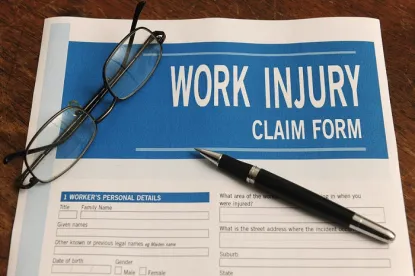Mesothelioma victims are not exempt from the exclusivity provisions and statutes of repose in Illinois’ Workers’ Compensation Act and Workers’ Occupational Diseases Act, according to a recently issued Illinois Supreme Court decision. Thus, common law claims against a former employer for asbestos related diseases are barred, even if the disease does not manifest until after the expiration of the statutes of repose.
In Folta v. Ferro Engineering, plaintiff James Folta sued his former employer, Ferro, for damages associated with his mesothelioma diagnosis. Folta asserted that he was exposed to asbestos while working at a Ferro plant between 1966 and 1970. Forty-one years later, in May 2011, he was diagnosed with mesothelioma. Shortly thereafter he filed his action against Ferro and 14 other defendants, seeking damages for the mesothelioma he allegedly developed as a consequence of his exposure to asbestos while employed by Ferro.
Ferro moved to dismiss the plaintiff’s occupational exposure claims as barred by the exclusive remedy provision of the Workers’ Compensation Act (820 ILCS 305/5(a), 11, and the Workers’ Occupational Diseases Act (820 ILCS 310/5(a), 11. Both Acts provide that so long as the injury and/or disease is covered by the Act, there is no separate or additional common law or statutory right to recover compensation or damages from an employer. In response, Folta argued that his claim fell within one of four exceptions to the exclusivity provisions, as articulated in a 1990 Illinois Supreme Court decision, Meerbrey v. Marshall Field & Co. The four “Meerbrey” exceptions permit a plaintiff to escape the exclusivity provisions of the Acts for injuries which (1) were not accidental; (2) did not arise from the employee’s employment; (3) were not received during the course of employment, or (4) were “not compensable under the Act.”
Relying on the fourth exception, Folta argued that because his diagnosis occurred 16 years after the expiration of the Acts’ respective 25-year statutes of repose, through no fault of his own he never had the opportunity to recover under the Acts, and thus his claim was quite literally “not compensable.” The circuit court disagreed, and granted Ferro’s motion to dismiss.
In June 2014, the First District of the Appellate Court of Illinois reversed the lower court, holding that “compensable” referred to the ability to recover under the Acts. Because Folta’s claims were foreclosed by the Acts’ statutes of repose, he could not recover under the Acts, and this inability to recover rendered his claims “not compensable,” so as to escape the exclusivity provisions.
On Nov. 4, 2015, the Illinois Supreme Court reversed the Appellate Court, and affirmed the circuit court’s ruling dismissing the claim. The Court expressly rejected the Appellate Court’s assertion that “compensable” is synonymous with “recoverable,” holding that “whether an injury is compensable is related to whether the type of injury categorically fits with the purview of the Act[s],” and specifically finding that occupational diseases arising from workplace asbestos exposure are the type of injury within the scope of the Acts. 2015 IL 118070, ¶ 23.
Moreover, the Court held that Folta did not have a valid common law cause of action just because the applicable statute of repose had expired prior to his diagnosis. Focusing on the “plain language” of each Act, and the intended purpose of statutes of repose generally, the Illinois Supreme Court held that the intended purpose of the Acts’ 25-year statute of repose was to “extinguish the employer’s liability for a work-related injury at some definite time.” Id., ¶ 35. That Folta was not at fault for failing to file a claim sooner due to the latent nature of his disease had no bearing on whether or not his claim was exempt from the exclusivity provisions of the Act. Id., ¶ 34. The Court recognized the “harsh result” of its interpretation, but directed any dissatisfaction with its ruling toward the legislature, noting that the Court’s role is “not to inject a compromise but, rather, to interpret the acts as written.” Id., ¶ 43.
As a result, employers in Illinois are only liable for asbestos-related injuries for a 25-year period after the plaintiff’s last date of exposure, and only for the remedies provided for within the Workers’ Compensation Act and the Occupational Diseases Act.


 />i
/>i

